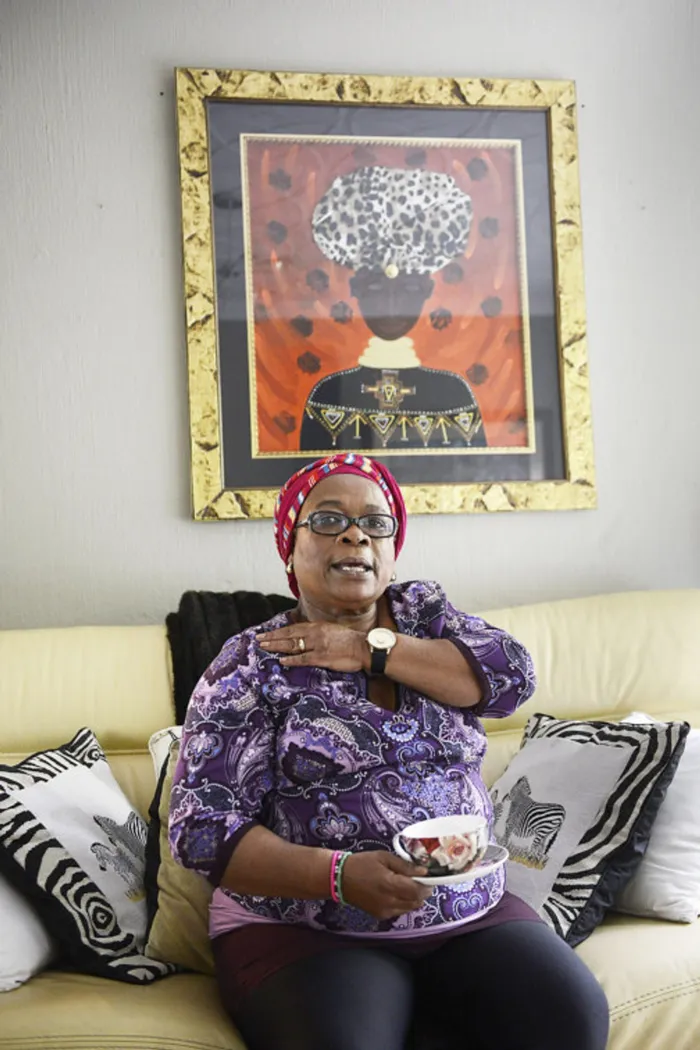‘Breast cancer better than depression’

211015 Cancer survivor and veteran actress Lillian Dube speaks from her home in Windsor about her struggle with Cancer and the recent removal of one of her breast. Picture:Paballo Thekiso 211015 Cancer survivor and veteran actress Lillian Dube speaks from her home in Windsor about her struggle with Cancer and the recent removal of one of her breast. Picture:Paballo Thekiso
Gabi Falanga
JOHANNESBURG: If actress Lillian Dube had to choose between having cancer and depression, she would choose the former.
She made this dramatic statement yesterday in a session on mental health at the “More than just a diagnosis” media summit, organised by the SA Depression and Anxiety Group.
“(Breast cancer sufferers) have support groups, everyone is concerned and loves us, but nobody gives depressed people the same love… because we are mad,” she said. “There’s no ways you can tell people you’re depressed because you don’t know you’re depressed.”
Dube, who is a breast cancer survivor and has had three severe bouts of depression, is best known for her roles as Mampho on the SABC soapie Muvhango and, ironically, as the depressed Sister Bettina on Soul City. Her colleagues at Soul City did not know she suffered from depression.
“When I was playing the role (of Sister Bettina), all the director had to do was show me my marks and everyone cried. That’s how sad depression is. I was already dead.
“You don’t know who you are, you are in this dark, bottomless pit. You don’t have the will to wake up, washing your body is a mission. You don’t even want to go to the loo. If I was sitting there, I would just do it there.”
Dube always made sure that someone witnessed her suicide attempts, probably because she had not wanted them to be successful. After hearing a man preach on the train one day about anger and betrayal, Dube was so touched that she promised herself she would fight her illness.
Doctors did not give her medication at the times she suffered from the illness, but she said she found attending church therapeutic. And because of her outgoing personality, her friends were usually the first to notice when she was depressed.
She encouraged people to monitor their loved ones for signs of depression. “Depression is an illness. It is very important for us as parents, as spouses, to be looking for those signs, because a person who is depressed does not know he or she is depressed.”
TV presenter Leanne Manas has also battled with mental health issues, namely anxiety and panic attacks.
“The first time I had a panic attack was when I came out of an anaesthetic after a knee operation… my heart was racing, I thought I was dying,” she said.
She had panic attacks numerous times before a doctor gave her a diagnosis. Medication and finally having a name for her distressing symptoms helped her to cope.
Although Manas has managed to cope without medication for long periods of time, her panic attacks surfaced again three years ago after the birth of her second child. She spent hours agonising over whether she would be able to take medication as well as breastfeed her baby safely.
Eventually, a psychiatrist put her on medication that was safe for the baby.
She said she did not feel guilty about taking medication in order to feel good and enable her to be the best possible mother.